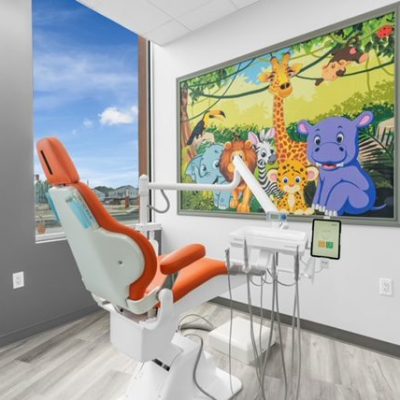Introduction
Practicing dental care at home can be one of the best things for your children’s health. Preventative care is the foundation for helping your children avoid dental problems and keep their mouths healthy. By encouraging them to brush and floss their teeth, you’ll be able to keep their smiles bright for years to come. However, when a dental emergency pops up, it can be a bit of a panicky situation. Whether your child’s tooth has been knocked out, they have a severe toothache, or they have a difficult time with some food in between their teeth, then we’re here to help. As always, if you are unsure of your situation, make sure to get in contact with an emergency dentist and get your child to their office right away so you can help avoid serious injury.
Tips For Equipping For Dental Emergencies
Tooth emergencies can happen at any time because children are usually prone to accidents during their youth. These injuries happen all the time, and even when you do your best to keep your child safe, oral injuries do happen. Among children less than 18 years old, 22,000 dental injuries occur, and among those injuries, at least 80% of them occur along with the upper teeth. Most of these injuries often come from sports such as basketball and baseball, with other sources of injuries occurring from home furniture and outdoor activities.
Most commonly
The average amount of injuries sustained to the teeth occur between the ages of 7 to 12. However, one of the biggest problems that occur for parents in these situations is delayed emergency attention for these kids. If you find yourself in a emergency situation where your child’s face or jawline is injured, here are some of the tips we offer to help you recover your child’s teeth and keep them safe:
- Assess Your Child: Check their breathing, their consciousness, and how aware they are of their surroundings. It’s important to observe your child’s state in situations where any form of head trauma has occurred. If they do not respond or appear to be in a severe condition, you must call 911 or take them to your local urgent care center.
- Evaluate Their Mouth: If they’re conscious, awake, and active, check their teeth, gums, and jawline for any present injuries. It’s important to assess their mouths to look for signs of a dislocated jawline, bruises and lacerations to the cheeks and tongue, and signs of imperfections in the teeth.
- Save The Tooth: If a tooth appears to be knocked out, find the tooth, rinse the tooth with clean water, and physically place the tooth inside the socket. Hold the tooth in the socket for a few minutes to keep it from falling out again. Once it merges back within the socket, schedule an appointment with your dentist to correct any misalignment.
- Go To Your Dentist: If you are unable to replant the tooth, make sure you control any signs of bleeding with a clean cloth, place any knocked out teeth in cold milk or the child’s saliva to keep it from drying out and make sure you get them to the emergency room or dentist immediately.
To prevent these injuries
Make sure to have them use mouthguards during sports, cover corners with plastic to protect toddlers, and keep an eye on your children during playtime. For more information about how to manage dental emergencies, the best place for these resources is through your pediatric dentist.
Practicing dental care at home can be one of the best things for your children’s health. Preventative care is the foundation for helping your children avoid dental problems and keep their mouths healthy. By encouraging them to brush and floss their teeth, you’ll be able to keep their smiles bright for years to come. However, when a dental emergency pops up, it can be a bit of a panicky situation. Whether your child’s tooth has been knocked out, they have a severe toothache, or they have a difficult time with some food in between their teeth, then we’re here to help. As always, if you are unsure of your situation, make sure to get in contact with an emergency dentist and get your child to their office right away so you can help avoid serious injury.
Tips For Equipping For Dental Emergencies
Tooth emergencies can happen at any time because children are usually prone to accidents during their youth. These injuries happen all the time, and even when you do your best to keep your child safe, oral injuries do happen. Among children less than 18 years old, 22,000 dental injuries occur, and among those injuries, at least 80% of them occur along with the upper teeth. Most of these injuries often come from sports such as basketball and baseball, with other sources of injuries occurring from home furniture and outdoor activities.
Most commonly, the average amount of injuries sustained to the teeth occur between the ages of 7 to 12. However, one of the biggest problems that occur for parents in these situations is delayed emergency attention for these kids. If you find yourself in a emergency situation where your child’s face or jawline is injured, here are some of the tips we offer to help you recover your child’s teeth and keep them safe:
- Assess Your Child: Check their breathing, their consciousness, and how aware they are of their surroundings. It’s important to observe your child’s state in situations where any form of head trauma has occurred. If they do not respond or appear to be in a severe condition, you must call 911 or take them to your local urgent care center.
- Evaluate Their Mouth: If they’re conscious, awake, and active, check their teeth, gums, and jawline for any present injuries. It’s important to assess their mouths to look for signs of a dislocated jawline, bruises and lacerations to the cheeks and tongue, and signs of imperfections in the teeth.
- Save The Tooth: If a tooth appears to be knocked out, find the tooth, rinse the tooth with clean water, and physically place the tooth inside the socket. Hold the tooth in the socket for a few minutes to keep it from falling out again. Once it merges back within the socket, schedule an appointment with your dentist to correct any misalignment.
- Go To Your Dentist: If you are unable to replant the tooth, make sure you control any signs of bleeding with a clean cloth, place any knocked out teeth in cold milk or the child’s saliva to keep it from drying out and make sure you get them to the emergency room or dentist immediately.
To prevent these injuries, make sure to have them use mouthguards during sports, cover corners with plastic to protect toddlers, and keep an eye on your children during playtime. For more information about how to manage dental emergencies, the best place for these resources is through your pediatric dentist.





















